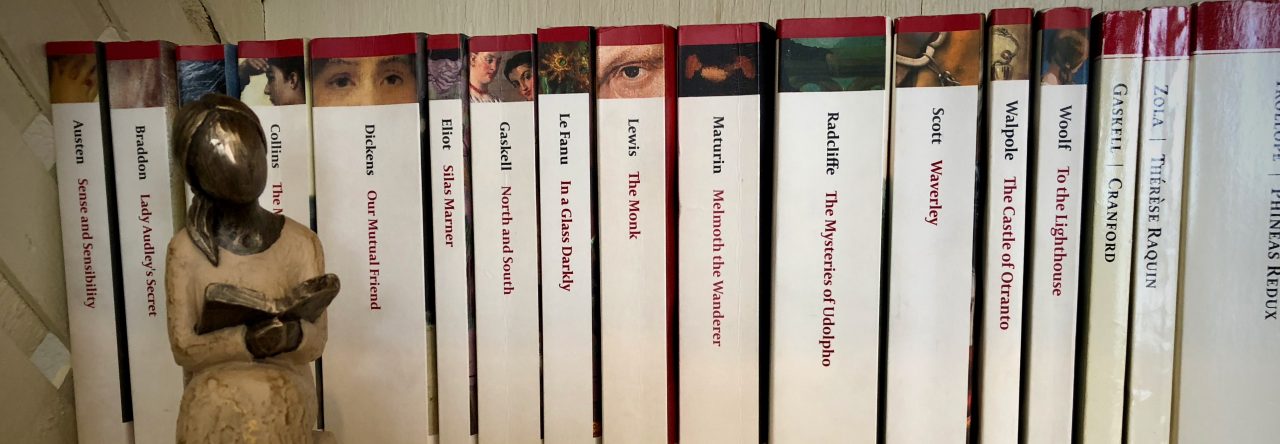Second in my short “catch-up” reviews. I finished Wide Sargasso Sea, by Jean Rhys, 31 Aug, 2019.

This short novel is a companion piece to Charlotte Brontë’s Jane Eyre, following the childhood and early adulthood of the woman who is known as Bertha Mason in Jane Eyre. (There are some slight spoilers for Jane Eyre below; I’ve tried to keep them small and to a minimum, but reader beware) According to Rhys, her real name is Antoinette Cosway, and she is the creole daughter of an European family who has fallen into poverty after the elimination of slavery in Jamaica. Her mother remarries a Mr. Mason, and Antoinette is educated at a convent, and then married to “him” (Mr. Rochester is never named), a relationship that is fractious and full of conflict and even hatred from the beginning.
I was intrigued by Wide Sargasso Sea both because I love retellings and re-imaginings and books related to other books, and because I liked the idea of giving Bertha a well-rounded storyline and the chance to be redeemed a bit. And the novel certainly does attempt that, presenting Antoinette as a complex character living in a complex time, and dealing with postcolonial and patriarchal themes. But ultimately, I just didn’t like it much. As it’s been a year, I’m afraid I cannot remember why in any great detail, but I found Antoinette unsympathetic, and the portrayal of the black Jamaican people rather cringe. Antoinette might have been dealt a bad hand, but she didn’t help matters, either. Indeed, she often does the one thing that would make whatever situation she’s in worse. Her final actions of the novel don’t feel poignant or triumphant, but petty.
Reading Jane Eyre through the lens of today does make Bertha seem maligned, but Rhys’s novel ultimately doesn’t do the rehabilitative work it purports to do. (Imho).
Have you read this? What did you think?

